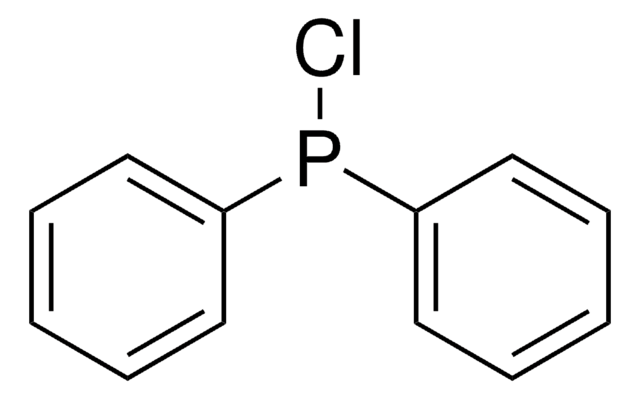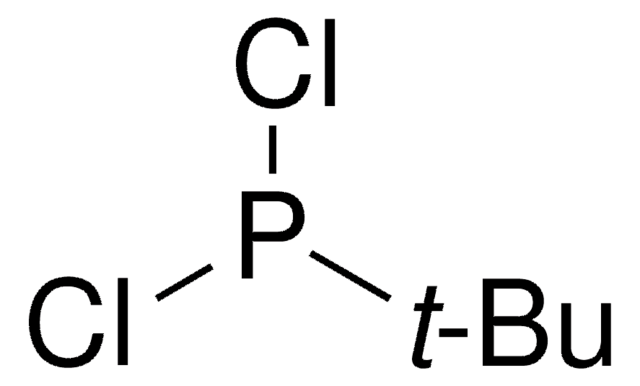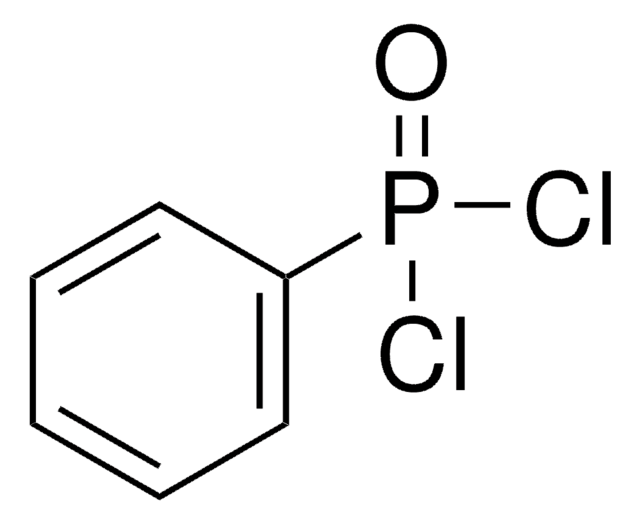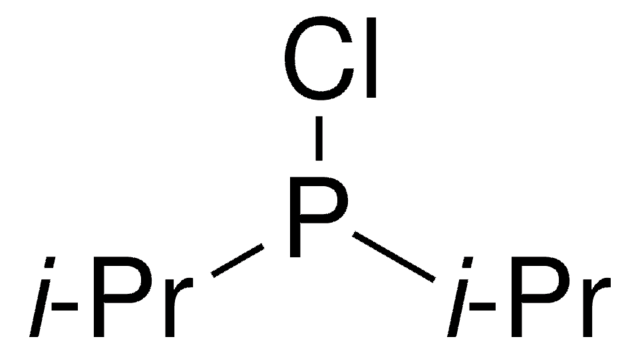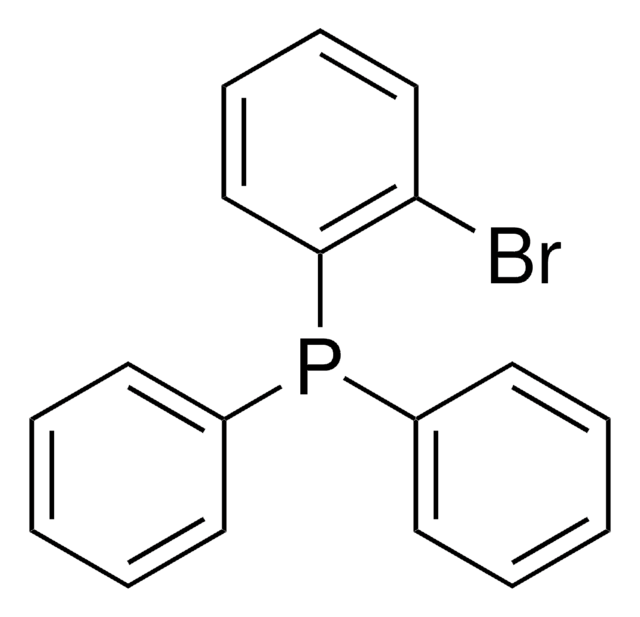D71984
P,P-Dichlorophenylphosphine
97%
Synonym(s):
Phenyldichlorophosphine, Phenylphosphine dichloride, PhPCl2, Phenylphosphonous dichloride
About This Item
Recommended Products
Quality Level
Assay
97%
form
liquid
reaction suitability
reaction type: Buchwald-Hartwig Cross Coupling Reaction
reaction type: Heck Reaction
reaction type: Hiyama Coupling
reaction type: Negishi Coupling
reaction type: Sonogashira Coupling
reaction type: Stille Coupling
reaction type: Suzuki-Miyaura Coupling
reagent type: ligand
refractive index
n20/D 1.597 (lit.)
bp
222 °C/759 mmHg (lit.)
mp
−51 °C (lit.)
density
1.319 g/mL at 25 °C (lit.)
functional group
phosphine
SMILES string
ClP(Cl)c1ccccc1
InChI
1S/C6H5Cl2P/c7-9(8)6-4-2-1-3-5-6/h1-5H
InChI key
IMDXZWRLUZPMDH-UHFFFAOYSA-N
Looking for similar products? Visit Product Comparison Guide
General description
Application
Signal Word
Danger
Hazard Statements
Precautionary Statements
Hazard Classifications
Acute Tox. 3 Oral - Skin Corr. 1B - STOT SE 3
Target Organs
Respiratory system
Supplementary Hazards
Storage Class Code
6.1C - Combustible acute toxic Cat.3 / toxic compounds or compounds which causing chronic effects
WGK
WGK 3
Flash Point(F)
235.4 °F - closed cup
Flash Point(C)
113 °C - closed cup
Personal Protective Equipment
Choose from one of the most recent versions:
Already Own This Product?
Find documentation for the products that you have recently purchased in the Document Library.
Customers Also Viewed
Our team of scientists has experience in all areas of research including Life Science, Material Science, Chemical Synthesis, Chromatography, Analytical and many others.
Contact Technical Service